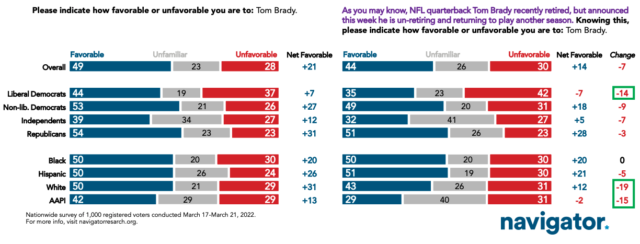- Canceling a portion of student loan debt remains broadly supported and increases the share who say Biden has kept his promises.
- Bipartisan majorities support limiting stock trading by members of Congress and federal judges.
- Nearly two in three support making Daylight Saving Time permanent.
Canceling Some Student Loan Debt Remains Popular and Is Most Supported By Younger, Black, and Hispanic Americans
Almost three in five Americans support canceling at least a portion of student loan debt, including nearly two in three of those under the age of 45 (64%). Three in five independents (59%) also support the idea.
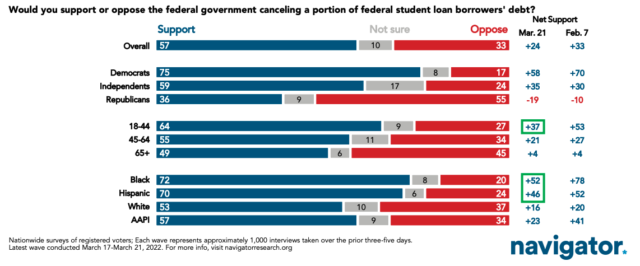 Canceling a Portion of Federal Student Loan Debt Leads a Majority to Say Biden Has Kept Campaign Promises
Canceling a Portion of Federal Student Loan Debt Leads a Majority to Say Biden Has Kept Campaign Promises
The greatest increases in perceptions that Biden has kept his campaign promises occur among independents (+10), Republicans (+10), and white Americans (+8), leading a majority of independents to say he has kept his promises (54%).
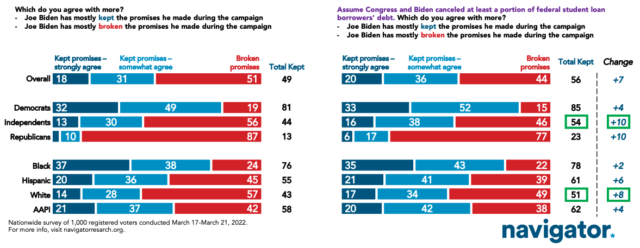
Nearly Three in Four Americans Support Legislation to Limit Stock Trading by Members of Congress and Federal Judges
A version of the question that also asks about limiting the ability of Supreme Court Justices and other federal judges to trade stock garners a slightly lower level of support than a version that only asks about members of Congress.
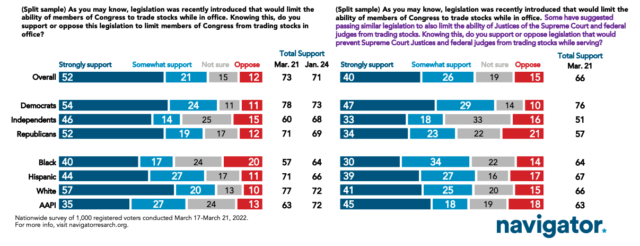
Bipartisan Support Exists for Making Daylight Saving Time Permanent
Majorities of every partisan and racial group support the change. Those most recently employed in white collar work (68%) are more supportive than blue collar (61%) or service industry (60%) Americans.
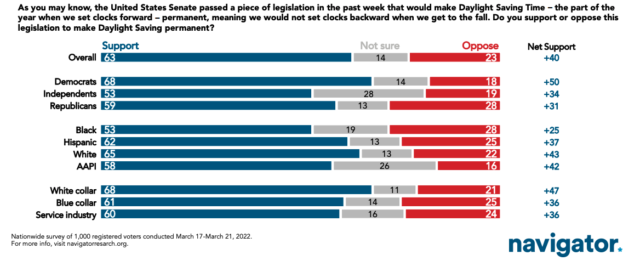
Almost Half of Americans Hold Favorable Views of Tom Brady, But His Favorability Drops When People Hear He Un-Retired
Upon initial ask, nearly half of Americans view Tom Brady favorably. When introducing his un-retirement from the NFL, his favorability drops 7 points, with a plurality of liberal Democrats viewing him unfavorably (42%).
